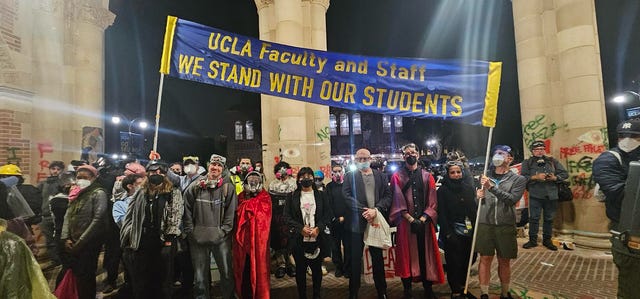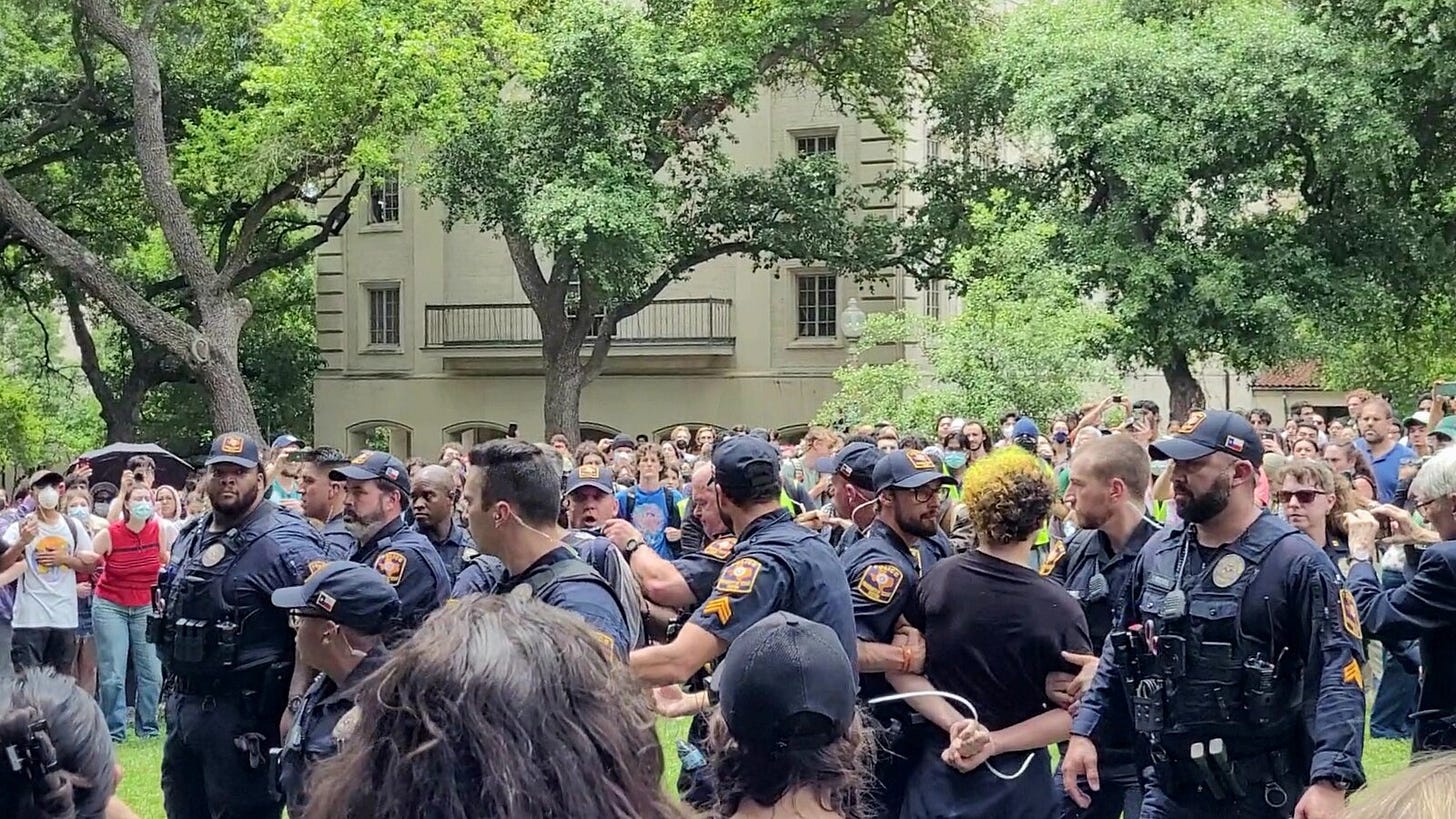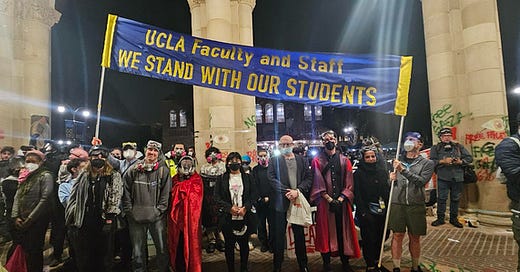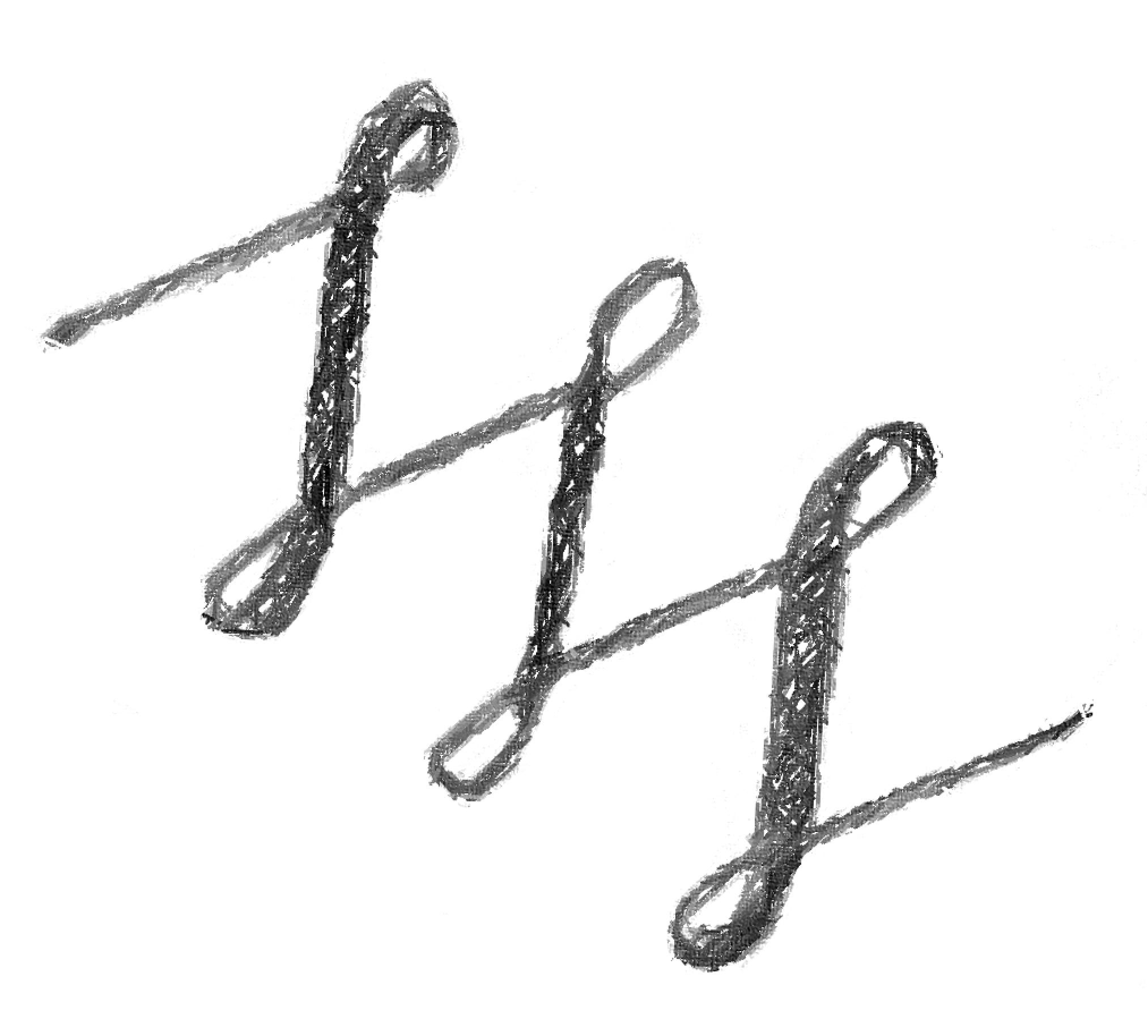Hi all,
Thank you for joining me for today’s song, “Boycott, sanction, and divest”, by David Rovics (2024). If you’d like to hear the song before you read about it, I’ve included a YouTube video below the article.
Below, you’ll find some background pertaining to the lyrics (written in italics). Comments and questions are welcome. Please be respectful of opinions that are not the same as yours. For Japanese students, vocabulary words in bold are provided in Japanese below. TOEFL (PBT) 450+, Eiken 2, CEFR B1.
Some protests in history
(542 words)
Protest is a human action that is taken when people cannot accept the way society is being run. Within the last 100 years, the world has seen many forms of protest such as strikes, boycotts, sit-ins, marches, and demonstrations. The vast majority of these have been peaceful. However, because the people who join disagree with government policies, governments have often used force to stop them. The media tends to show any violence that happens to imply that the protests were not peaceful, and seeing this makes the general public want even more force applied to the protestors.
• India, 1930s: Gandhi and thousands of peaceful protestors beaten and arrested for taking salt from the sea (1)
• 20th century, U.S. and U.K.: miners and factory workers went on strike for better pay and working conditions and were arrested in many places
• Civil rights era of the 1950s and 60s: police were called in to arrest peaceful protestors
• 1968, Mexico City: police opened fire on unarmed students who were demanding better education (2, 3)
• 1969, Shinjuku Station in Tokyo: police sent in to break up the “folk guerrilla” concerts against the Vietnam War (4)
• 1970, Ohio: This week was the anniversary of the shooting of students by the National Guard at Kent State University
• 2011, Egypt: police sent to stop the sit-in in Tahrir Square (5)
• Soweto, Hong Kong and many more.
Students speak out
Students on campuses in many countries have participated in various forms of protest in order to pressure their universities to change their policies. One of these is divestment.
Universities in the U.S. receive donations from graduates and others (6). The university then hires professionals to invest the money in a variety of stocks, real estate, etc. Where this money is invested is not always disclosed to the public. Universities also do research that sometimes becomes part of the war machine. Students in the U.S. demonstrated against the research their universities did on chemical weapons used in Vietnam. They also protested the apartheid government of South Africa in the 1980s, demanding universities divest from companies that did business with South Africa (7). Many faculty and staff supported them.

I imagine that many English language learners who follow Social Issues in Song probably know what has been happening on college campuses in the U.S., France, the U.K., Mexico, Canada, and Australia (8).
It’s hard to understand all of the history behind how the current situation in Israel/Palestine happened. It takes a lot of reading and talking to begin to understand, and I encourage all of my readers to do that and to decide for themselves. For today’s song, let’s focus on what the students in these protests want.
They want the killing of civilians to stop. Hamas attacked Israel on October 7, 2023, killing over 1,000 Israelis and others. No one condones that horrible act. The way that Israel has responded - to drive Palestinians off the land by any means necessary - is the problem.
Students are saying that they don’t want their tuition fees to be used to support what is happening in Gaza. They want the universities to disclose how the money is spent (9). They also believe that sanctions should be placed on Israel to force it to stop the starvation of Palestinians and to allow humanitarian aid to reach them.

The Song
(268 words)
Today’s song, Boycott, sanction, and divest, was written about what is happening:
It’s happening now, like it has before
At the universities, in a time of war
Put people together, they'll communicate
Talk about things like college and state
Talk about the research that built the Iron Dome (The Iron Dome is the weapons system that Israel uses to defend against missile attacks.)
Talk about their relatives starving back at home
Talk about tuition, and where the money’s spent
And where all the buildings in Gaza went
Wake up each morning and the headlines say
How many hundreds of Palestinians died today
How many thousands were killed in the past week
People get together, people speak
The newscasters say with surety
The campuses lack security
Meanwhile across the ocean wide
Palestinian genocide
People are saying they won't leave til they win
And then the police are sent in
Beaten and arrested staff and students
And to try to silence this growing movement
They’re punishing people for making it known
That the direct connection can be easily shown
How the investments of this institution
Are funding another Final Solution (The Final Solution was Nazi Germany’s plan to eliminate Europe’s Jewish population.)
Where it goes is anyone’s guess
After all, this is the US
Battles have been lost and won
But with bombs being dropped every day by the ton
With the orphaned and famished beneath the sky
Waiting for the moment when it’s their turn to die
Some people just can’t look away
They have to set up a tent on the campus and say
Boycott, sanction, and divest!

Question:
What effective ways are there to demand changes in a government’s policies?
Vocabulary
imply 仄めかす
divestment 飛ばし, 放棄する
donation 寄付
disclose 開示する
condone 大目に見る
tuition fees 授業料
sanctions 制裁
starve 飢える starvation (n.)
humanitarian aid 人道的援助
surety 確実性
genocide 大量虐殺
punish 罰する
fund 資金を出す
eliminate 抹殺、絶滅させる
orphan 孤児になった
famished 飢えた
Sources
(1) Libguides: Asian Studies: Gandhi’s Salt March. Gandhi’s Salt March - Asian Studies - LibGuides at University Of Central Arkansas. https://uca.libguides.com/asianstudiesresources/saltmarch Accessed 4 May 2024.
(2) Katsiaficas, G. (2018). Global imagination of 1968: Revolution and counterrevolution. PM Press.
(3) Taibo, P. I. (2019). ’68: The Mexican autumn of the Tlatelolco massacre. Seven Stories Press.
(4) Takeshi, B., Hidaka, K., & Sudo, Y. (2005). 60年代「燃える東京」を歩く. JTB Publishing. (60 nendai moeru tokyo wo aruku)
(5) Hassieb, I. (2011, August 1). Egypt’s military police forcibly break up Tahrir Square sit-in. The Washington Post. https://www.washingtonpost.com/world/middle-east/egypts-military-police-break-up-tahrir-square-sit-in/2011/08/01/gIQAnvPOnI_story.html Accessed 4 May 2024.
(6) Nam, R. (2024, May 2). How university endowments operate. NPR. https://www.npr.org/2024/05/02/1248790620/how-university-endowments-operate Accessed 4 May 2024
(7) Guardian News and Media. (2024, May 3). Let us remember the last time students occupied Columbia University | Omar Barghouti, Tanaquil Jones, and Barbara Ransby. The Guardian. https://www.theguardian.com/commentisfree/article/2024/may/03/columbia-pro-palestinian-protest-south-africa-divestment Accessed 4 May 2024.
(8) Sharp, A. (2024, May 3). Pro-Palestinian campus protests go global. Foreign Policy. https://foreignpolicy.com/2024/05/03/us-campus-protests-israel-palestine-gaza-france-australia-antisemitism-bill/ Accessed 4 May 2024.
(9) Democracy Now! (2024, April 22). Historic Gaza protests at Columbia University continue as campus protests spread across country. https://www.democracynow.org/2024/4/22/solidarity_encampment Accessed 4 May 2024.
Learn more about David Rovics at https://www.davidrovics.com/ and davidrovics.substack.com







What about going to a different university, say one of the free universities in the Scandinavian countries? Boycotting the universities themselves would give a strong message.